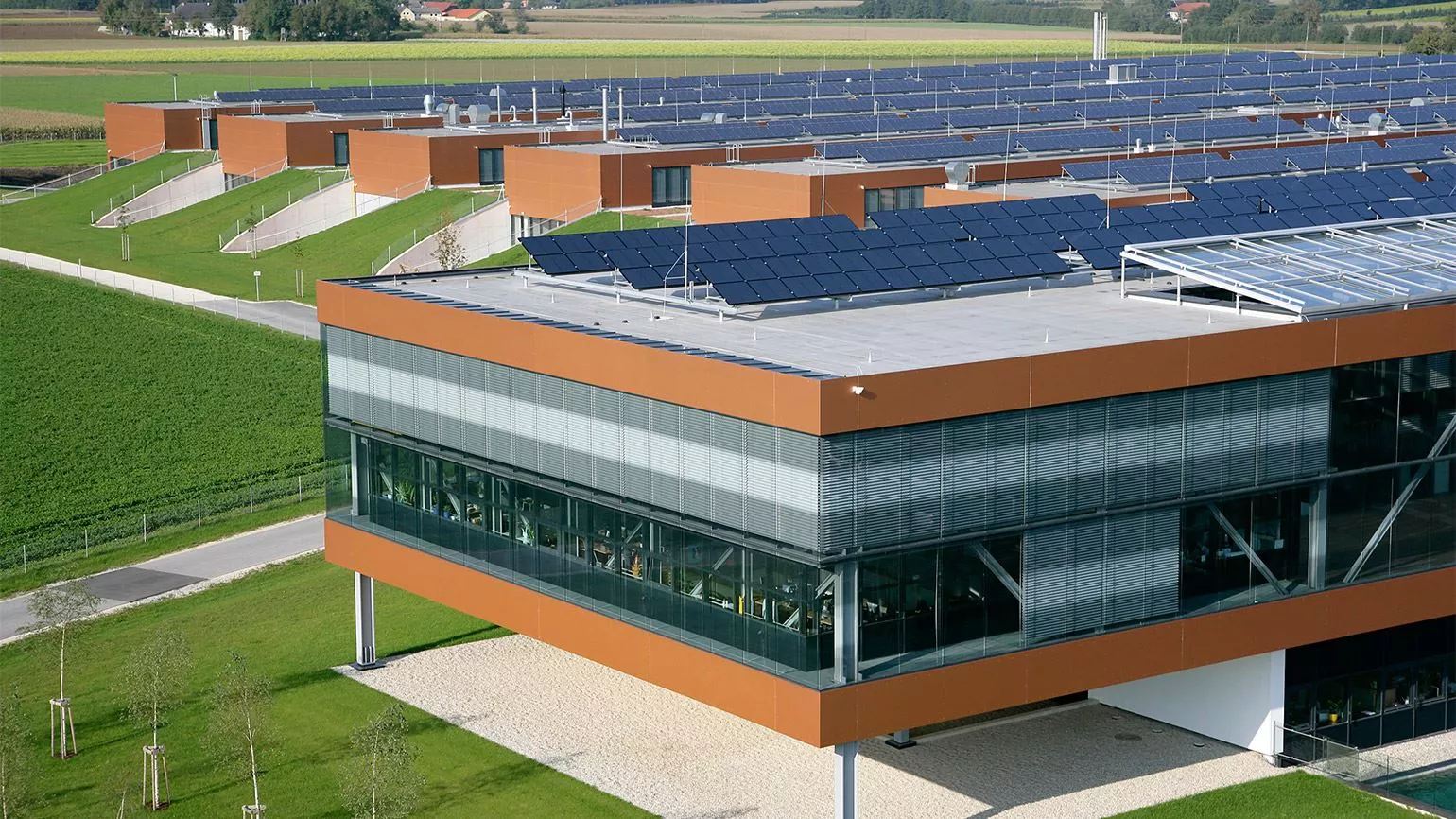What is an Inverter? Everything you need to know About the Heart and Brain of a PV System
In brief – what is an inverter?
|
A current is not always a current
A PV system can provide you with your own source of renewable energy. To do this you need solar modules that generate electricity from the energy radiated by the sun. But this electricity cannot be used in the household right away, as it’s in the form of direct current, whereas most household appliances and the grids use alternating current. You therefore need an inverter to convert the direct current into alternating current. Only then will you be able to use the energy from the sun, or feed it into the grid.
The inverter is usually installed in a loft, cellar or a garage, where it doesn’t take up too much space: On average, it’s about the same size as a medicine cabinet. The appropriate power category for the inverter will depend on the size of the photovoltaic system, so the best thing to do is to get advice from a professional installer in your area.
Yield and safety – the most important functions of the inverter
Because of its main functions, the inverter is known as the “heart and brain” of the PV system.
- Making current usable:
converting direct current into alternating current for use in the home.
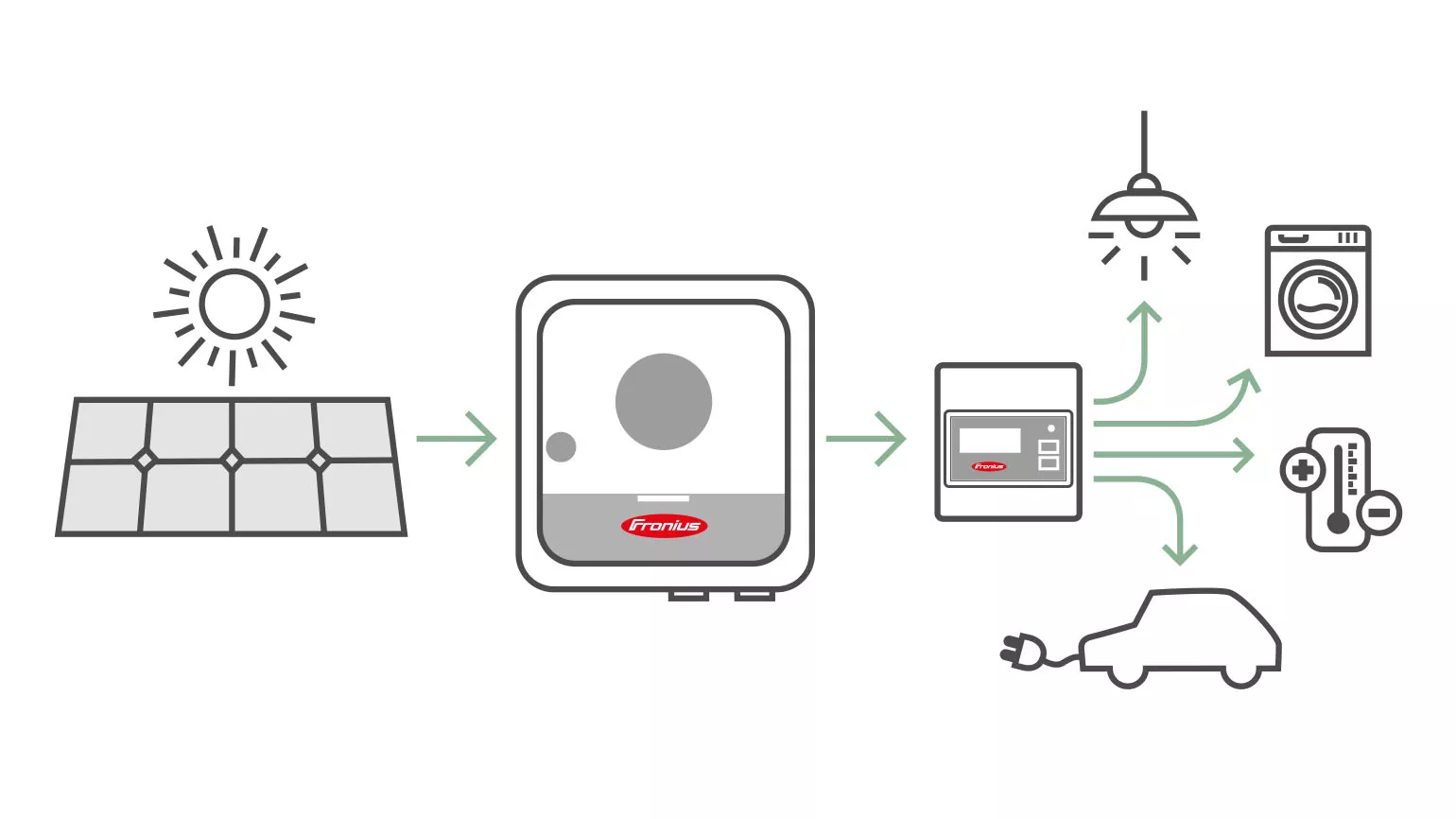
- Optimising system output:
monitoring the current and voltage values of the solar modules to ensure they’re always delivering the best possible output. - Guaranteeing safe operation:
the inverter is also an important factor in the safety of your system. For example, it contains a cooling feature that prevents the system from overheating. It also controls the frequency of the grid and reduces the output as required. In a worst-case scenario, the inverter can also disconnect the system from the grid. - Increasing self-consumption:
electricity from your roof is cheaper than electricity from the grid. A smart inverter will therefore ensure that you are able to use as much as possible of the solar power that your system generates yourself. - Backup power supply:
solar power can only be generated, used and, in combination with a battery, stored – even in the event of a blackout – if your inverter features backup power functionality.
The ability to use and store electricity is critical in determining the amount you can save using a PV system, and the degree of self-sufficiency that the system will give you. We’re therefore going to delve a little more deeply into these two topics.
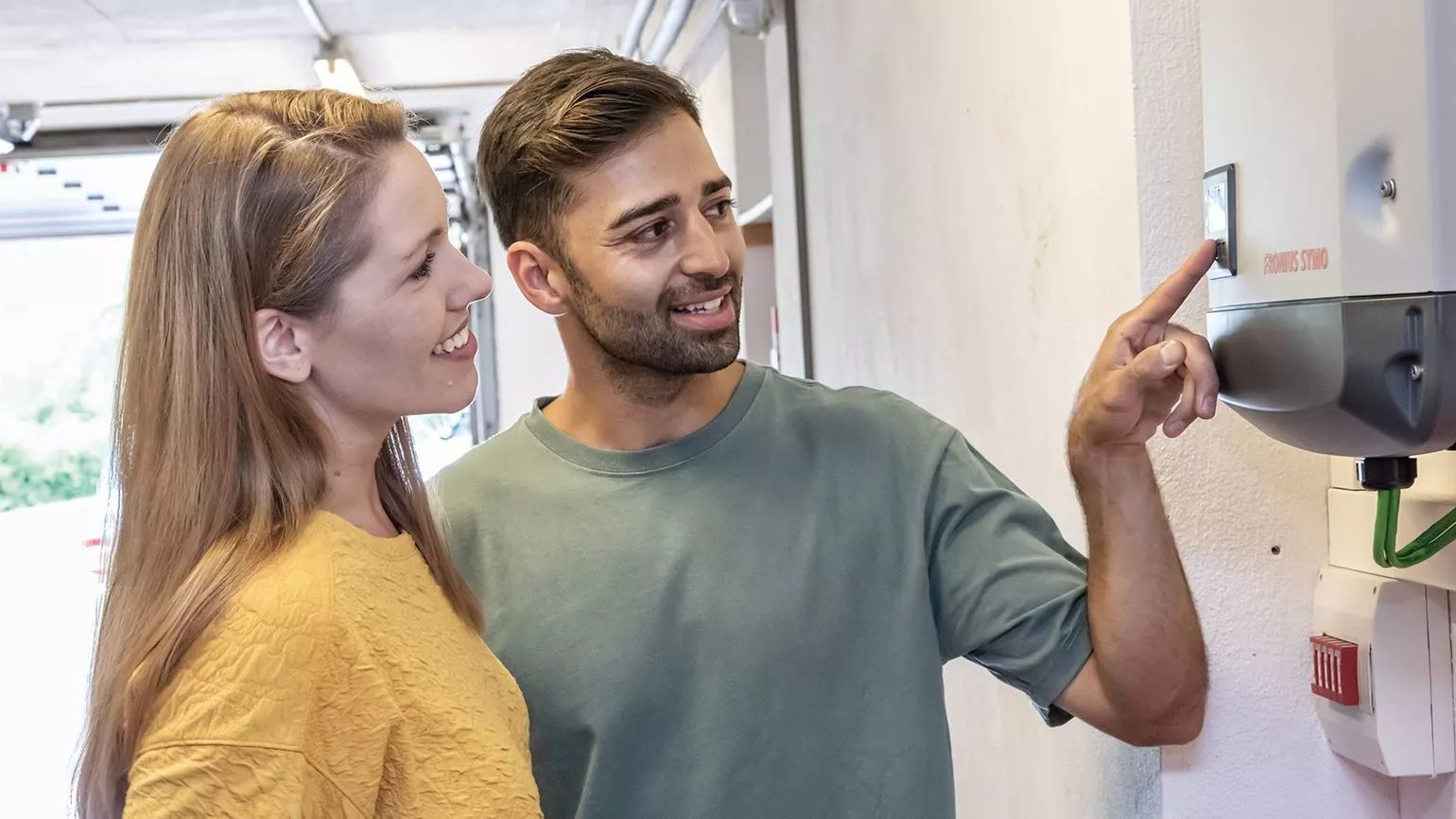
Intelligent partner for a smart energy system
Feed-in tariffs are falling all the time, which is why it’s a good move to use as much as possible of your self-generated electricity yourself. It therefore makes sense to choose an inverter that will provide you with the highest levels of intelligent energy management. When used with a Fronius Smart Meter, Fronius inverters will enable you to keep tabs on your electricity consumption very easily. Fronius inverters can control electrical loads in the household to ensure that as much of your own solar power as possible is used. They are also easy to integrate into popular smart home systems.
Blackout? The lights stay on.
When planning a PV system, many people want to have a backup power supply in case there’s a blackout. But the majority don’t realise that hardly any inverters offer this feature. Even if the sun continues to shine during the blackout and the solar modules produce energy, most inverters cannot provide a backup power facility. If you want real self-sufficiency, you must therefore make sure that you choose an inverter that offers backup power.
Your local installer will again be able to answer your questions. You can then discuss what you want from your photovoltaic system, and what functions the ideal inverter should have.
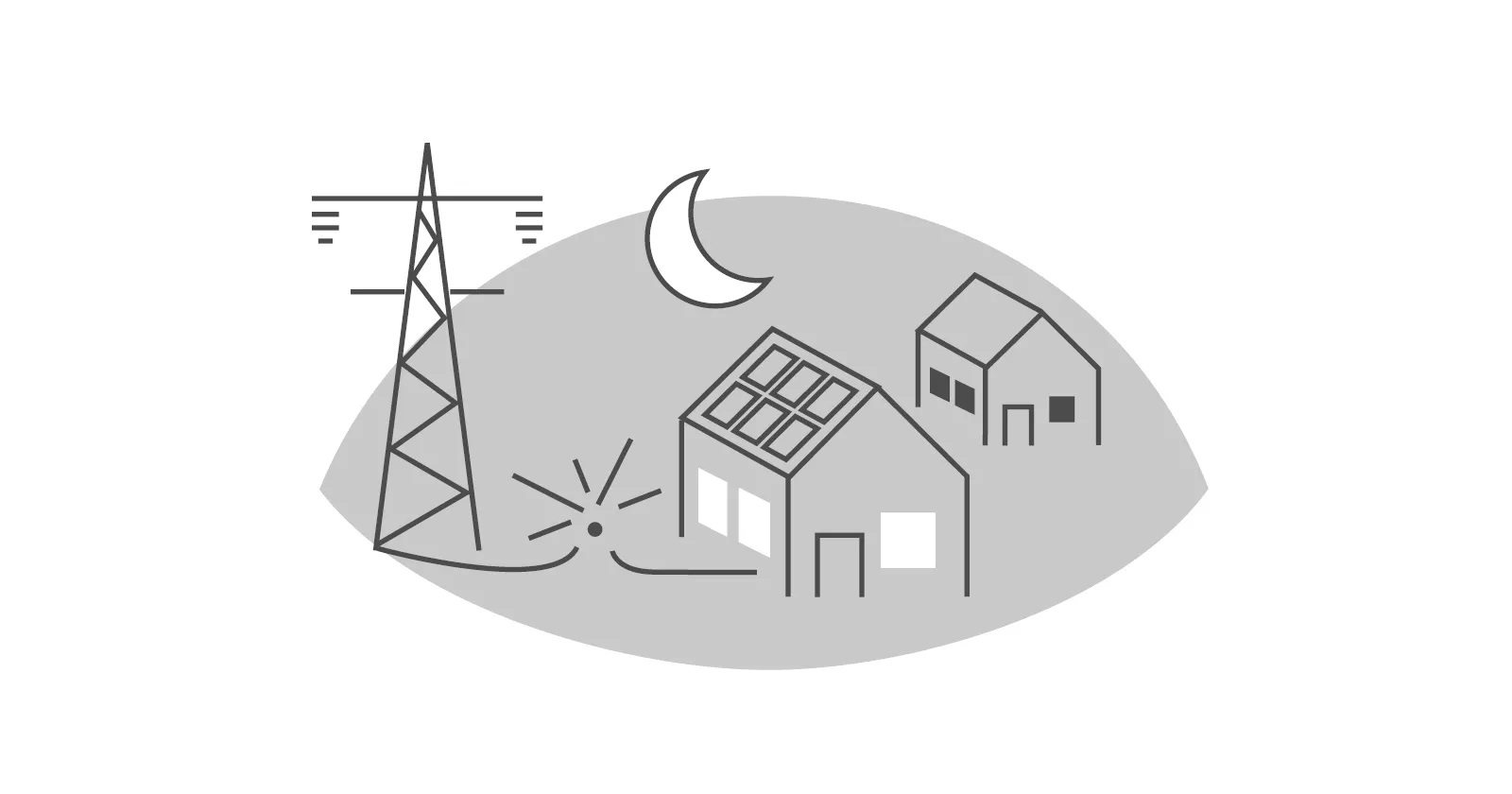
What the choice of inverter involves
We recommend that you don’t just focus on the functions of the inverter when making your decision. Other factors, such as system monitoring or maintenance logistics, also need to be considered. Solar.web enables you to monitor yields and consumption data from the comfort of your own sitting room. If you want, the software can be configured to notify your installer automatically should a problem ever arise – just click the relevant box in the settings. Faults are fixed before you even knew they existed.
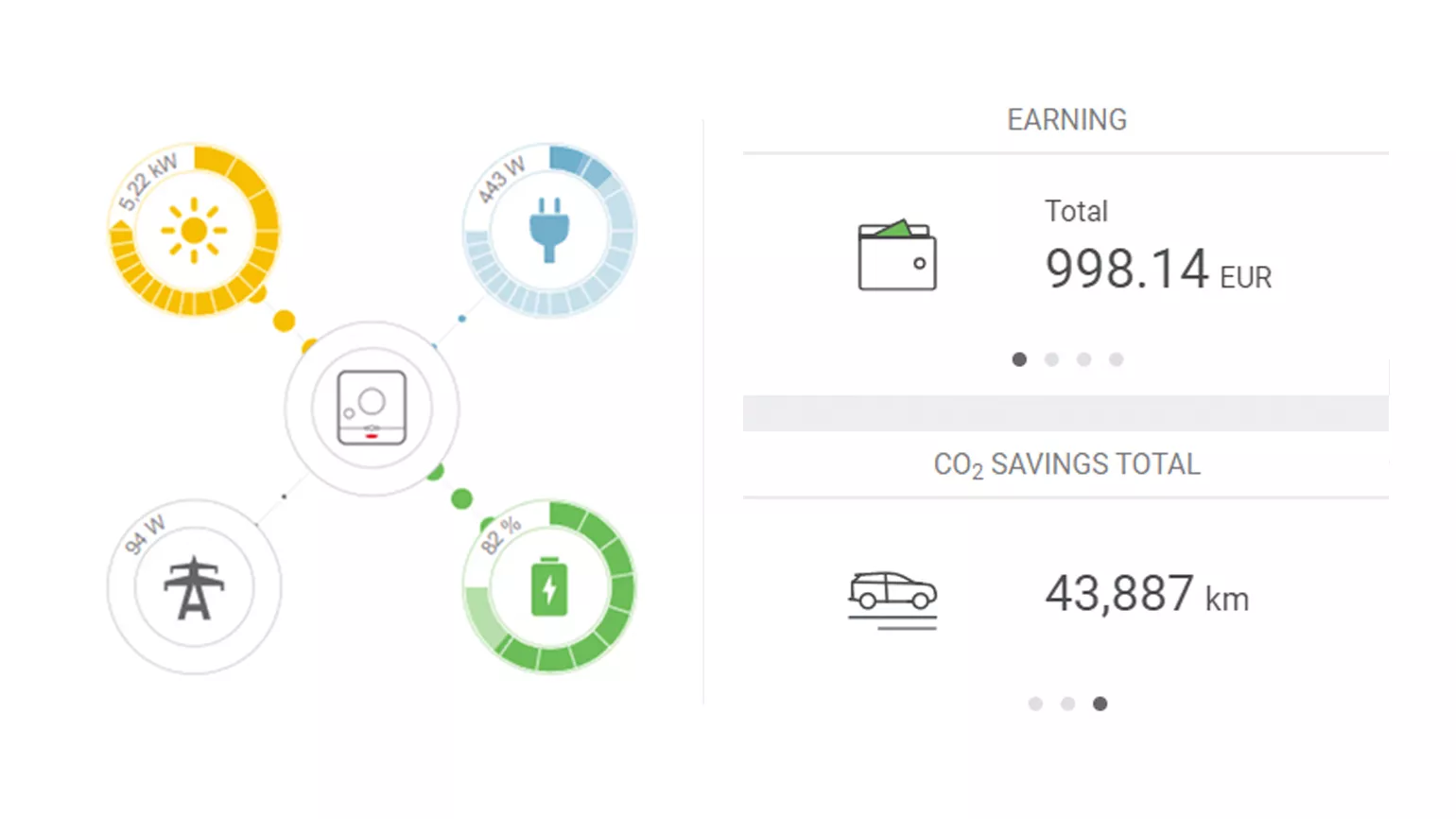
Solar energy – sustainable in the long term?
There are serious differences in how inverters are made that affect factors such as sustainability and environmental protection. Fronius products are manufactured in Austria using minerals from conflict-free zones and energy generated by our own photovoltaic systems. With a module area of 7000 m², the system on the roof of the production hall in Sattledt is one of the largest in Austria and could provide enough electricity for 250 households. Fronius treats sustainability as a lived reality, not just a cliché.
As you can see, there are several things to be considered when deciding which inverter to buy, and your local installer is there to help you make your choice.
